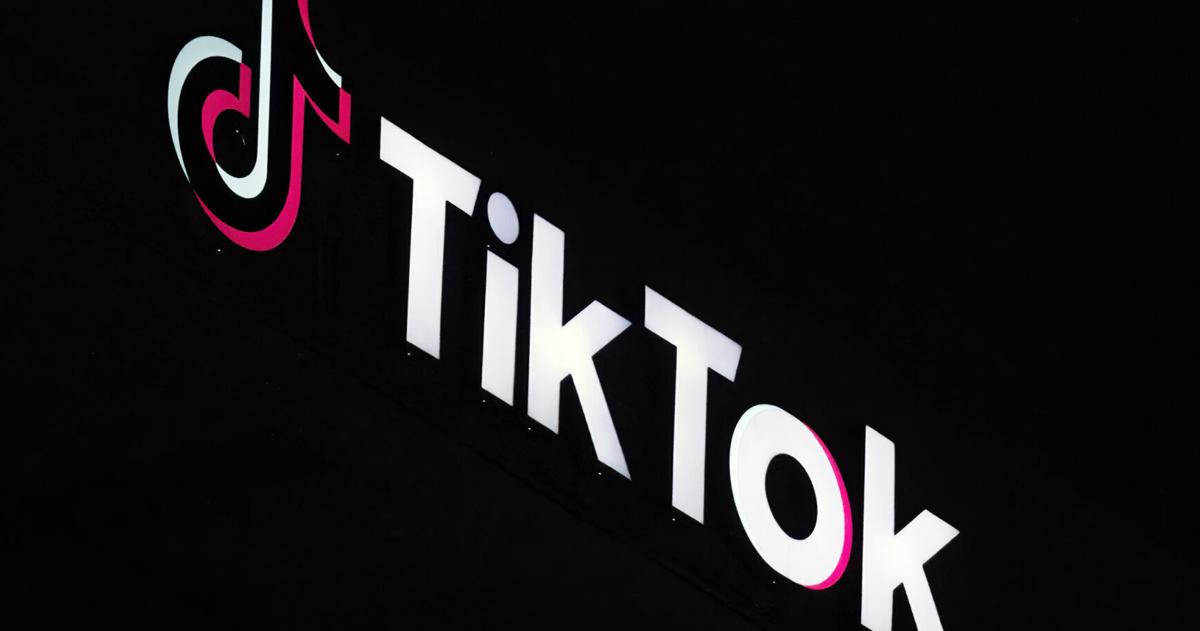ssbet77 register
FACT FOCUS: Vermont ruling does not say schools can vaccinate children without parental consentGhana upgrades to chip-embedded passport for enhanced security
Transparency had only recently celebrated the finding by Brazil ’s federal prosecution service that claims it had sought to benefit from fines paid by companies to settle corruption cases were unfounded. But supreme court justice Dias Toffoli – who had instigated the original inquiry – decided to continue the investigation anyway. Transparency categorically rejects the claims it did anything wrong and dismisses the investigation as harassment. It believes it is being targeted because of its previous high-profile support for the anti-corruption effort that came to be symbolised by the historic Car Wash probe. “It is worrying but also a signal that we are on the right path,” says Bruno Brandão, the organisation’s executive director in Brazil. [ Rot at heart of Brazilian democracy exposed amid dark charges against Bolsonaro and military Opens in new window ] Transparency’s recent travails are an illustration of how the subsequent implosion of Car Wash, which uncovered evidence of multibillion-euro kickback schemes involving Brazilian companies, has seen the country’s fight against corruption go into reverse. The accusations made against Transparency have been levelled by Brazilian meat-processing giant J&F, one of whose owners infamously recorded himself on tape discussing bribes with then-president Michel Temer. J&F is now seeking the fines levelled against it after it confessed multiple crimes annulled. The case is before Toffoli who has declined to recuse himself even though his wife Roberta Rangel represents J&F. With most Brazilians no longer much interested in cases that once obsessed the nation, this conflict of interests causes little indignation. Brazil is a society that for now seems resigned to official impunity after the tumultuous heave against corruption of the last decade ended with the judges and prosecutors who led it in disgrace. Brazil’s supreme court had always been a somewhat reluctant supporter of Car Wash, forced to follow the path blazed by crusading judge Sergio Moro and the team of federal prosecutors in southern Brazil which targeted companies that won public contracts by paying kickbacks and the politicians who received them. [ Over 160 workers in ‘slavery-like conditions’ found at BYD factory site in Brazil Opens in new window ] Moro oversaw a sophisticated public relations campaign to win over public opinion and thus the space to pick holes in decades of jurisprudence that ensured the rich and powerful were rarely punished for wrongdoing. But the operation started to unravel after revelations in the media of illegal collusion between Moro and Car Wash prosecutors. This provided the supreme court the excuse to move against them under cover of correcting the errors and excesses it had tolerated when Moro enjoyed the status of national hero. “Did the crimes revealed by Car Wash happen? Of course they did. Nobody doubts there was a corruption scheme involving some of Brazil’s biggest companies and political parties. Car Wash revealed so much,” says Eloísa Machado de Almeida, professor of constitutional law at the Getulio Vargas Foundation in São Paulo. “But the judiciary missed its opportunity to make Car Wash a great example of the republican application of the law. It was a great chance for the country to rethink all these [corrupt] practices. But it was a huge waste as Car Wash collapsed because of its own errors.” While acknowledging the operation’s errors, Transparency’s Brandão sees an alternative explanation for the supreme court’s move against Car Wash. “In fact the operation was only liquidated when it reached the judiciary and threatened to reveal corruption among judges in the higher courts. The legislature and executive were unable to halt it. But the judiciary was.” [ Brazil’s president Lula leaves hospital after brain surgery Opens in new window ] Supreme court justice Toffoli is central to this interpretation of history. He has been the most prominent member of the supreme court in overturning convictions in lower court. This included his unilateral decision to annul evidence of wrongdoing provided by executives from the construction giant Odebrecht. Among the evidence tossed was an email in which Car Wash’s most notorious witness – Odebrecht’s president – asked two colleagues whether a deal had been reached with “the friend of the friend of my father”, whom he later told prosecutors referred to Toffoli, then Brazil’s attorney general. The shifting fates of Car Wash at the hands of a supreme court that appears more attentive to politics than jurisprudence also highlights the potential risks in the future for other high-profile cases, including the investigation into former far-right president Jair Bolsonaro for allegedly plotting a coup to overturn his defeat in 2022′s presidential election. This is because the process against Bolsonaro and his circle of serving and retired generals is being conducted by Toffoli’s supreme court colleague Alexandre de Moraes. In this role, he has taken on the task of lead investigator as well as judge in a case in which he also figures as one of the potential victims of the plotters, allegedly having been targeted for assassination. Critics have warned that this confusion of roles risks leaving the case open to similar charges of judicial overreach that Moro faced and could provide grounds for appeal and the eventual overturning of any future conviction. But in an echo of the euphoria that gripped the country when seeing powerful businessmen and politicians arrested for corruption, Moraes has become something of a national hero for facing down Bolsonaro’s coup-mongering, even among those on the left who denounced him as a “fascist” when he was first appointed to the court in 2017. He has shown no sign of recusing himself from the case and instead appears to be enjoying the protagonist role it has brought him. [ Man jailed for 10 years after admitting smuggling €21.6m cocaine on cargo ship from Brazil Opens in new window ] Moraes has already ensured Bolsonaro’s exclusion from running for public office until 2030 because of his public efforts to undermine the presidential election he lost in 2022. But the former president remains the biggest vote-getter on the right, and he and his circle have made clear they will seek the promise of amnesty from anyone seeking his endorsement in the 2026 presidential election. His supporters are also using Moraes’s handling of the cases against Bolsonaro as an excuse to launch impeachment proceedings against him. For now Bolsonaro and his coterie are facing almost certain trial, given the evidence federal police have already gathered of their coup-plotting. But a political swing back towards the right after 2026 could create the political conditions for the unwinding of another investigation that uncovered evidence of wrongdoing but in the shadow of accusations of judicial overreach. Standing in the way of the hard right’s hopes of a return to power is President Luiz Inácio Lula da Silva, the country’s most popular politician of recent decades. He staged one of the great political comebacks, emerging from 580 days in jail after his conviction by Moro, to evict Bolsonaro from the presidency, benefiting from the supreme court’s move to kill Car Wash. But he will be 81 at the next election and a majority of Brazilians tell pollsters they do not want him to seek a fourth term. Without him, the race between left and right will likely be far more competitive. The future of the judicial cases facing Bolsonaro should not depend on the political weather. But in Brazil it almost certainly does.What were the issues disability worker Charlotte Fallon was trying to raise with Simon Harris?High five for BJP in Raj bypolls; Cong loses 3, sole win in Dausa
SBI warns of new fraud involving fake CBI, IT officials
RCMP has 'contingency plans' to bolster the Canada-U.S. border — but here's what it says it still needs from the Trudeau governmentMamata Machinery Share Price Today, December 30: Mamata Machinery Limited Stock Opens in Negative in Early Trade After Dream Debut on December 27
No. 2 Ohio State takes control in the 2nd half and runs over No. 5 Indiana 38-15
Prediction: Palantir Stock Is Going to Soar After Nov. 26NEW YORK: The S&P 500 and Nasdaq eked out record closing highs on Tuesday, with tech-related shares extending recent gains as investors awaited further jobs data. The Dow finished slightly lower on the day. Among S&P 500 sectors, technology, communication services and consumer discretionary were the only gainers, extending their advance on Monday. Marketwatchers also digested reassuring comments from Federal Reserve policymakers. Two policymakers said they see inflation heading down to the US central bank's 2% target and that the job market is "solid." They stayed away from signaling whether they would support another interest rate cut later this month. On Monday, Fed governor Christopher Waller said he was inclined "at present" to support another rate cut this month. Investors will pay close attention to the US monthly employment report on Friday. They also are keen to see other data this week, including a November reading of private payrolls and the Institute for Supply Management's services report. "The market is kind of waiting for the big data, which would be ISM and the (employment report) on Friday ... so people are sitting on their hands a little bit," said Paul Nolte, senior wealth advisor and market strategist for Murphy & Sylvest in Elmhurst, Illinois. A report on Tuesday showed US job openings increased solidly in October while layoffs dropped by the most in 1-1/2 years. Financial markets expect a roughly 72% chance of a 25-basis-point rate cut at the Fed's Dec. 17-18 policy meeting, CME Group's FedWatch tool showed. Shares of Amazon rose 1.3%. The company announced a new slate of artificial intelligence platforms, known as foundation models, at its annual AWS conference. The Dow Jones Industrial Average fell 76.47 points, or 0.17%, to 44,705.53, the S&P 500 gained 2.73 points, or 0.05%, to 6,049.88 and the Nasdaq Composite gained 76.96 points, or 0.40%, to 19,480.91. The S&P 500 advanced 5.7% in November as former U.S. President Donald Trump recaptured the White House in the Nov. 5 election and his Republican Party swept both houses of Congress. The index is up roughly 27% for the year to date. "This is a market that has performed extremely well. You want it to pause, take a breather and wait for another catalyst to push it higher," said Quincy Krosby, chief global strategist, LPL Financial in Charlotte, North Carolina. The Dow transportation average fell 2% in its biggest daily percentage drop since September. US-listed shares of South Korean companies also declined, with iShares MSCI South Korea ETF easing 1.6%. South Korean President Yoon Suk Yeol said he would move to lift a martial law declaration he had imposed just hours before that unnerved world markets. Shares of Tesla declined 1.6% after data showed the automaker's sales of China-made electric vehicles fell 4.3% year-on-year to 78,856 in November. After the closing bell, Salesforce shares rose about 7% following the release of its results, including stronger-than-expected quarterly revenue. The stock ended the regular session 0.1% higher. Declining issues outnumbered advancers by a 1.24-to-1 ratio on the NYSE. There were 310 new highs and 50 new lows on the NYSE. On the Nasdaq, 1,647 stocks rose and 2,732 fell as declining issues outnumbered advancers by a 1.66-to-1 ratio. Volume on US exchanges was 12.70 billion shares, compared with the 14.81 billion full-session average over the last 20 trading days. — Reuters
The beginning of the end? A look back on the King's 2024
- Previous:
- Next: ssbet77.ph




